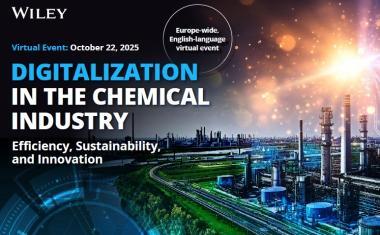Sustainability and the Chemicals Industry
The chemicals industry is one of the world’s largest industrial sectors, worth €3,471 billion in 2020. It includes producers of industrial chemicals, polymers, pesticides, food and feed additives, and cosmetics, and is growing rapidly. By some estimates it will reach almost $22,000 billion by 2060.
Yet an even greater opportunity awaits the sector if it can find a way to bring sustainability to the heart of its operations. The green economy is worth roughly $4 trillion – 5% of the total listed equity market – and is now larger than the oil and gas sector. This article will present some of the key business benefits from sustainable products and processes, together with the interventions that Efeso consulting can implement to help you achieve this.
The Opportunity
Sustainability is not new in the chemicals industry. For decades, companies have dealt with topics such as safety, risk management, and environmental impact, under the dual pressure of increasingly stringent regulations and growing customer awareness. Now, however, sustainability has become a key topic for investors, regulators, and customers aware of the chemical industry’s direct role in tackling challenges such as climate change, food shortages, and hazardous waste. The chemicals industry has even been referred to by the European Commission for its “indispensable” role in helping society achieve the new European Green Deal objectives. With these expectations come great opportunities: Many sustainability-related innovations such as electric vehicles or smart buildings are only possible thanks to the innovative materials produced by the chemicals industry. The cost of doing nothing is high. Many players still struggle to understand the value created through more sustainable products and processes and how to justify the related investments, but failure to deal with topics such as workplace safety and environmental impact will bring high costs in terms of fines and losses of sales. It can also cause severe reputational damage. Success, on the other hand, can generate important financial savings, build an attractive brand, attract investment, promote innovation, and boost customer loyalty.

Where to Begin
Small investments in sustainability may generate considerable cost reductions. The low hanging fruit among sustainability-related cost reductions is energy efficiency. There are many opportunities to reduce energy consumption in chemical plants, and some of these opportunities can be achieved with a very low level of investment. Energy efficiency is just one among many potential cost reductions that a sustainable approach can generate. Sustainability can also improve efficiency and productivity by reducing waste and risks in operations, and supply chains. At a more strategic level, sustainability can drive the development of innovative solutions and new products for market. Several studies have demonstrated how a good environmental performance is positively perceived by the stock markets.
|
Client Story: "Reduce Program” - Boosting GHG reduction to become climate neutral by mid of the Century Challenge: OQ Chemicals is a global leader in oxo chemicals with operations in Europe, Americas and Asia. The group has already been questioning its existing approaches and decided to boost its sustainability strategy by defining and implementing a very structured and clear roadmap to reduce their GHG emissions over the coming years. Oliver Borgmeier, CEO of OQ Chemicals said: "Our goal is clear: to become a climate-neutral company until mid of the century, meaning until 2050 - or even before." Results: Within 4 months, this ongoing project has delivered a structured approach and a clear roadmap with defined and intermediate targets. Several initiatives have been launched and implementation started at the beginning of 2022. To know more: https://bit.ly/3VkFVVW |
Reputation Matters
An environmentally and socially sound business will also create a green reputation, with positive consequences in terms of attraction and talent retention. Young workers tend to prefer an environmentally friendly workplace. This is an important fact to consider in the light of the challenge of retaining qualified workers that many companies are facing.
Retailers are urging for products free from toxic chemicals, able to attract green consumers. In line with this demand, in 2022 Walmart announced the elimination of nearly 37 million pounds of toxic “priority chemicals” from its products. Similar actions were introduced by retailers Lowe’s, Sherwin-Williams, The Home Depot, True Value, PPG Paints, AutoZone, Kelly-Moore Paints, Canadian Tire and Home Hardware.
At the same time, top retailers are steadily improving their chemicals policies and practices for the products and packaging they buy and sell. Recent industrial studies are documenting the efforts of companies like Apple, Target, Walmart, and Ikea for the protection of their customers from toxic products and packaging.
An Industry on the Move
With this pressure to choose the sustainable path coming from all sides, the chemicals industry is in prime position to seize the opportunity. The consumer focus on wellness and climate change is resulting in a higher willingness to pay a “green premium”, which helps further justify investments in sustainability by the industry. Whether your organization chooses to take simple energy efficiency measures as outlined above, or to make a full-scale move away from petrochemicals, there are changes that can be made.
Talk to us at Efeso Consulting to find out how we can help.
Note: References are available from Efeso upon request.







